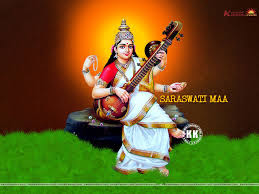My life and mission : 6.
In the Order to which I belong we are called Sannyâsins. The word means "a man who has renounced". This is a very, very, very ancient Order. Even Buddha, who was 560 years before Christ, belonged to that Order. He was one of the reformers of his Order. That was all. So ancient! You find it mentioned away back in the Vedas, the oldest book in the world. In old India there was the regulation that every man and woman, towards the end of their lives, must get out of social life altogether and think of nothing except God and their own salvation. This was to get ready for the great event — death. So old people used to become Sannyasins in those early days. Later on, young people began to give up the world. And young people are active. They could not sit down under a tree and think all the time of their own death, so they went about preaching and starting sects, and so on. Thus, Buddha, being young, started that great reform. Had he been an old man, he would have looked at the tip of his nose and died quietly.
The Order is not a church, and the people who join the Order are not priests. There is an absolute difference between the priests and the Sannyasins. In India, priesthood, like every other business in a social life, is a hereditary profession. A priest's son will become a priest, just as a carpenter's son will be a carpenter, or a blacksmith's son a blacksmith. The priest must always be married. The Hindu does not think a man is complete unless he has a wife. An unmarried man has no right to perform religious ceremonies.
The Sannyasins do not possess property, and they do not marry. Beyond that there is no organisation. The only bond that is there is the bond between the teacher and the taught — and that is peculiar to India. The teacher is not a man who comes just to teach me, and I pay him so much, and there it ends. In India it is really like an adoption. The teacher is more than my own father, and I am truly his child, his son in every respect. I owe him obedience and reverence first, before my own father even; because, they say, the father gave me this body, but he showed me the way to salvation, he is greater than father. And we carry this love, this respect for our teacher all our lives. And that is the only organisation that exists. I adopt my disciples. Sometimes the teacher will be a young man and the disciple a very old man. But never mind, he is the son, and he calls me "Father", and I have to address him as my son, my daughter, and so on.
To be continued ....
Swami Vivekananda .



.jpg)
Comments